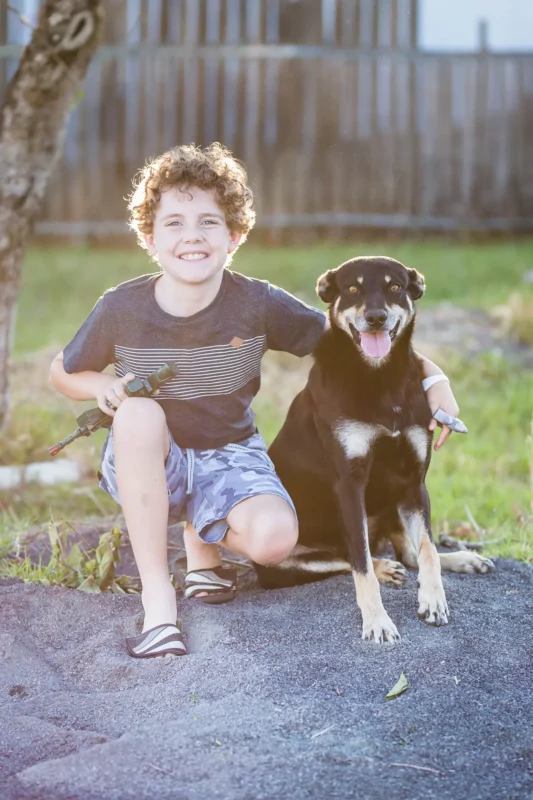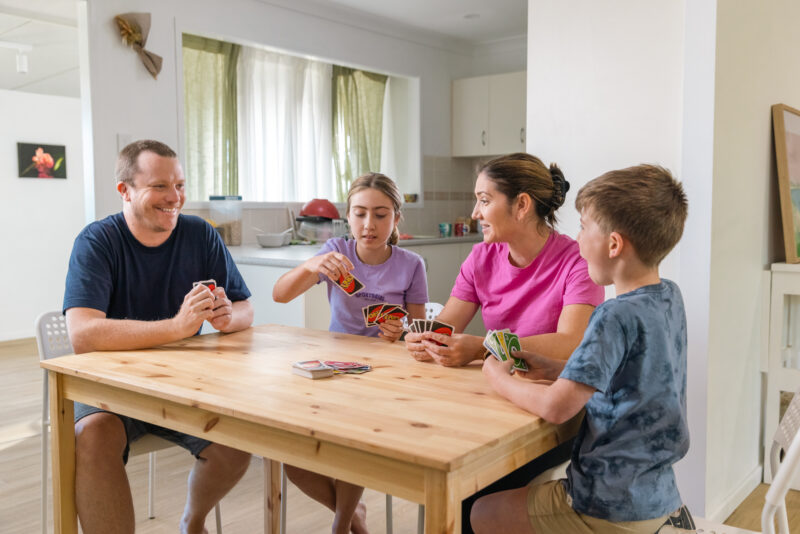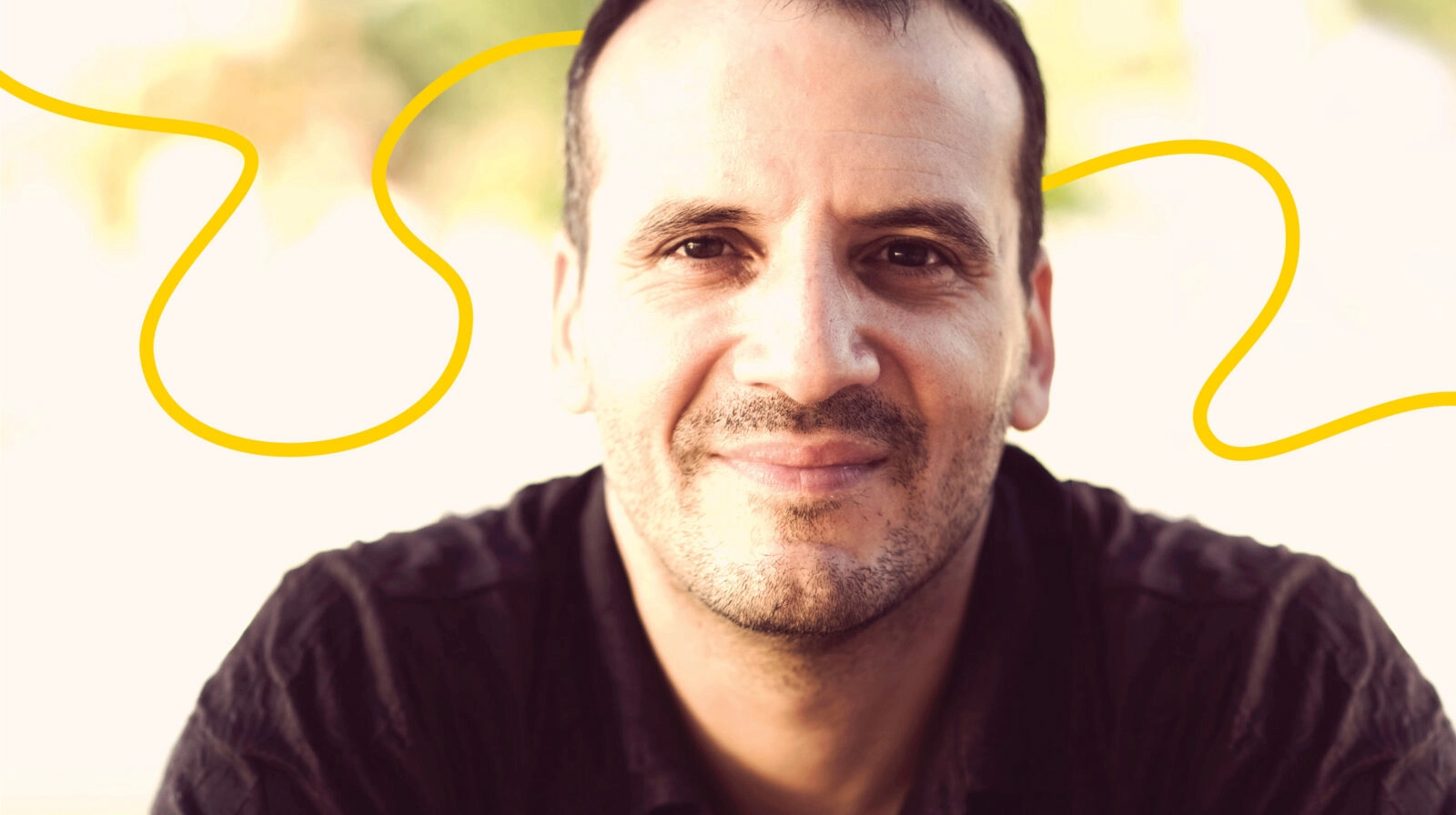What is respite foster care?
Respite foster care involves providing short-term foster care for a child in out-of-home care, usually through planned respite placements such as weekends, school holidays, or temporary care periods. This type of foster care support gives long-term foster carers and kinship carers time to rest, recharge, and maintain their wellbeing, while ensuring the child continues to experience a safe, stable, and nurturing care environment.
Respite care is a vital component of the foster care system, helping foster families sustain long-term caring roles and prevent carer burnout. Through respite fostering, carers can offer children positive experiences, continuity of care, and supportive relationships with new or familiar caregivers. Many respite carers provide regular, ongoing support to the same child, building trust, consistency, and a strong, ongoing relationship over time.
Almost anyone can apply to become a foster carer or respite carer, regardless of family structure or background. Take our foster care eligibility quiz to find out if you are eligible to foster a child and learn more about becoming part of a supportive foster care community.
The goals of respite foster care
Respite foster care plays an important role in supporting children, carers, and the foster care system as a whole. The primary goals include:
- Supporting foster carers – Giving full-time carers the opportunity to rest and recharge so they can continue providing stable, loving care.
- Providing children with a new experience – Helping children build resilience by staying with different, trusted adults while maintaining their sense of security.
- Strengthening the foster care system – Ensuring long-term carers can continue their important work by preventing burnout.
Respite carers are not just stepping in temporarily, they are providing an essential layer of support that helps maintain the stability of children in foster care.
How to become a respite foster carer
Becoming a respite carer follows a similar process to other types of foster care. Our team will guide you every step of the way, from initial enquiries to welcoming your first placement. The process includes:
- Expression of interest: Submit your details to start your foster care journey.
- Training and assessment: Participate in training sessions to prepare for the role.
- Home assessment: Ensure your home is a safe, welcoming environment for a child.
- Approval and matching: Once approved, we work with you to find the right child for your family.
Who is eligible to become a foster carer?
Support for respite carers
Fostering a child is a significant commitment, but you won’t be doing it alone. Anglicare Southern Queensland provides comprehensive support, including:
- 24/7 on-call assistance – Support when you need it, day or night
- Dedicated caseworkers – Ongoing guidance and advice from experienced professionals
- Training and development – Access to workshops, courses, and learning opportunities
- Financial support – Carer allowances to help cover the costs of raising a child
- Peer support networks – Connect with other foster carers for advice and encouragement.
We ensure you have everything you need to provide the best possible care for the child in your home.
Resources

Are you Eligible?
Almost anyone can become a foster carer. Take our Quiz to find out if you’re eligible.

Start Your Journey
Start your foster care journey. Complete our expression of interest to apply to become a foster carer.

10 Facts About Foster Care
There are a lot of foster care myths out there, but what are the facts? Our guide helps you understand.

Foster Care for Families Guide
Fostering is a family commitment and this eGuide supports open conversation about whether fostering is suitable for your family.

Advice for Future Foster Carers
Becoming a foster carer is a pretty incredible thing to do. Enjoy these supportive words and advice from foster carers.

Foster Care Information Kit
There is no right or wrong journey to becoming a foster carer, only your journey. We’re here to help you along that path.
Hear from respite carers
Foster carers play a life-changing role in a child’s life. Read about the experiences of real foster carers and the incredible impact they’ve made.
Start your foster care journey today
Becoming a respite foster carer is an opportunity to change a child’s life forever. If you’re ready to take the first step, express your interest here or contact us at 1300 610 610.
Frequently asked questions
There are many foster care options available. You may choose to be a part-time or a full-time carer, depending on your lifestyle and family arrangements. We can work with you to work out what would work best for you. If you have a family, it’s important to consider their needs in the decision making process.
Respite carers support long term carers by giving them a break. They may have the children for a weekend or for a few weeks.
Yes definitely! Caring for children is an extremely rewarding and fulfilling experience. However we know it can, at times, be demanding. So it’s important to us that you take the time to recharge and take a break.
We’re here to support you and will work with you to book in regular or one off breaks so you get the time you need.
Foster carers in Queensland receive a government Fortnightly Carer Allowance to help cover day-to-day costs such as food, clothing, transport and school activities. The amount depends on the child’s age and needs and is regularly indexed. Anglicare also connects carers with extra supports and one-off payments where eligible, so you are not left carrying the financial load alone.
The basic Foster Carer Allowance is paid fortnightly and is designed to meet the reasonable costs of caring, not to provide a wage. Higher needs, complex behaviours or additional responsibilities may attract top-ups or supplementary payments. When you enquire with Anglicare, we explain the current Queensland rates in detail and help you understand how allowances, reimbursements and other supports fit your household budget.
Respite care itself is usually short term – often a weekend, a few days or occasional school holidays – but some carers later choose longer-term roles. In Queensland, long-term foster placements commonly continue until at least 18, and Anglicare placements can sometimes extend to around 21 to support a safe transition into adulthood where appropriate.
Children and young people can be in care right through their teens, and in Queensland most formal orders end around 18, with some extended support beyond this. Anglicare works with babies, children and adolescents, matching you with ages and needs that suit your family. We focus on whether you can offer a safe, stable home rather than a strict “maximum age” for children.
Our person-centred approach means we work with you to find out how foster caring can fit with your lifestyle. We connect with you at every stage of your foster care journey, supporting and connecting you to training so you will have the skills you need to be a great carer. We also offer resources and access to wider community groups.
If you decide to take the foster care journey, a Foster Care Case Practitioner will be with you every step of the way. The role of a Case Practitioner is to recruit, train, assess, and support foster carers.
Case Practitioners are also responsible for matching children with an appropriate foster family. Case Practitioners are part of a wider team who also provide intensive support to children and carers.
Almost anyone who wants to make a difference in a child’s life can become a foster carer.
To be eligible to apply, you’ll need to be at least 18 years of age. You also need to commit to home safety and personal background checks, as well as foster care training, so you have the skills you need to be a great carer.
Many people rule themselves out and think they can’t apply. It doesn’t matter if you are single, male or female, in a same sex partnership, have other children at home or no children at all. What matters is your passion to make a difference.
What is Anglicare’s purpose?
-
We’ve been caring for Queenslanders for over 150 years
-
We connect with people at every stage of life and respond with compassion and humility
-
Our team is experienced, dedicated and equipped to help
-
We advocate to inform positive social change
-
Our vision is to create a more loving, just and inclusive society.
Contact Us
Submit this form or call us to learn more about foster care at Anglicare. Our team is available between 9am and 5pm weekdays on 1300 000 828
Foster & Kinship Care Enquiry
Got questions?
If you have questions about becoming a foster carer, please call us or download our comprehensive guide.
